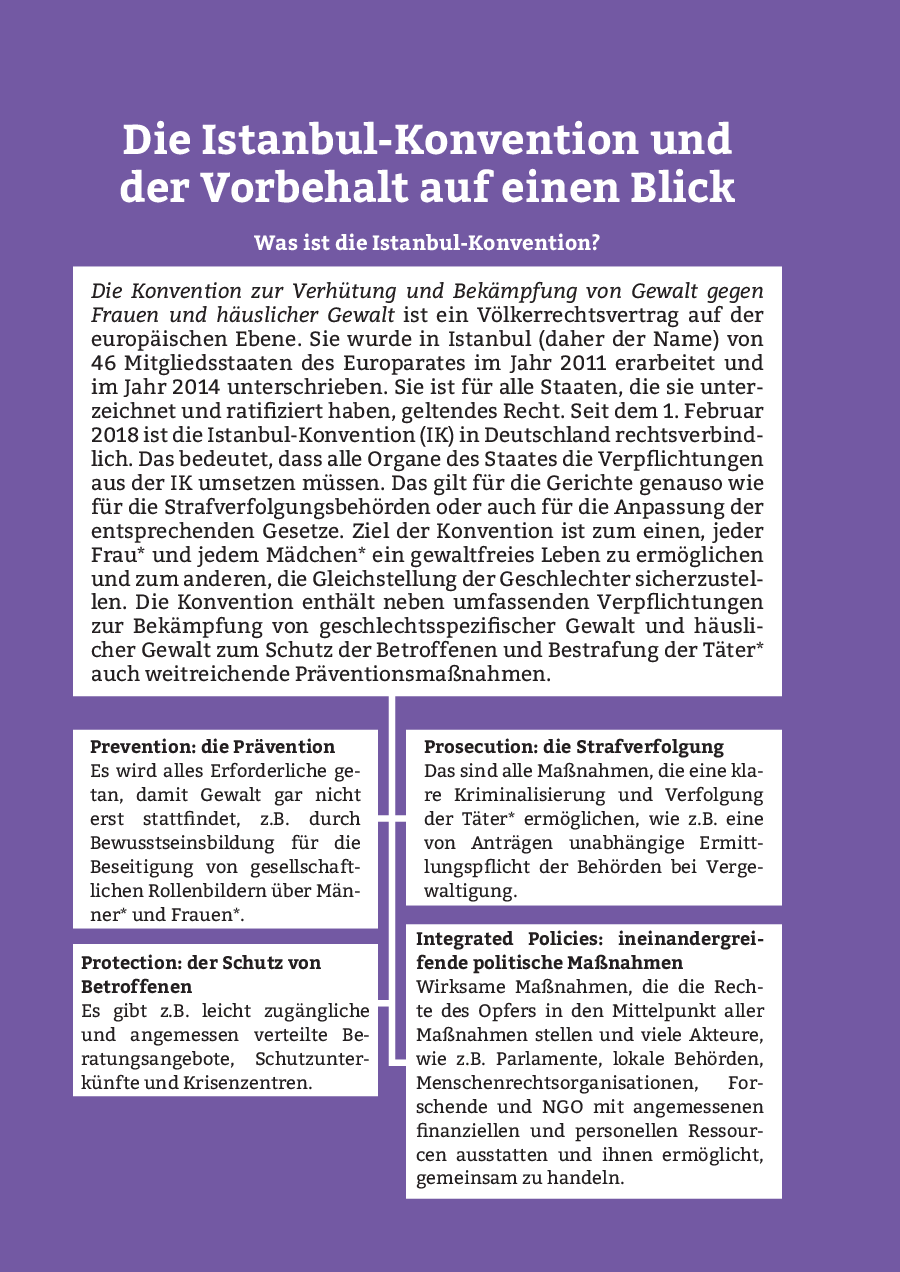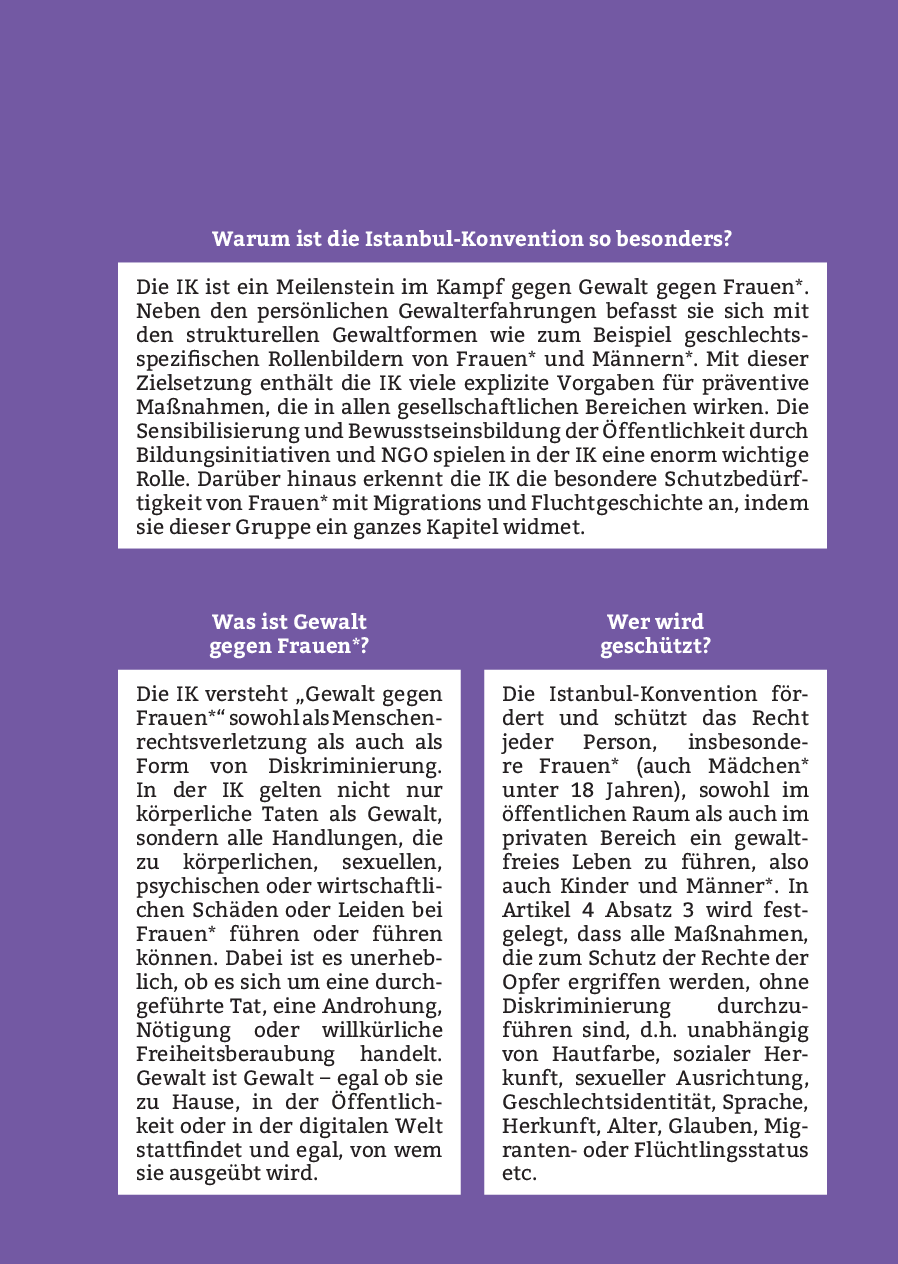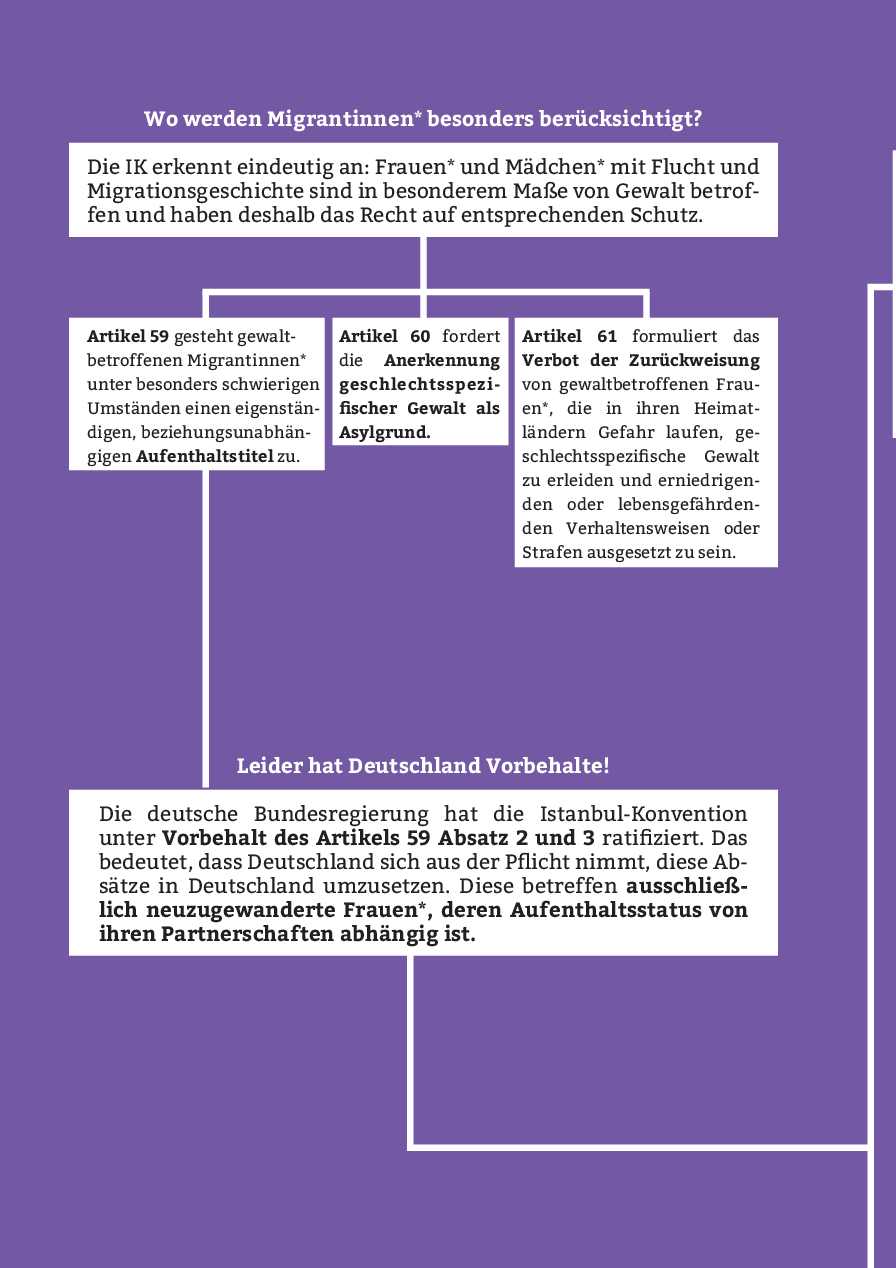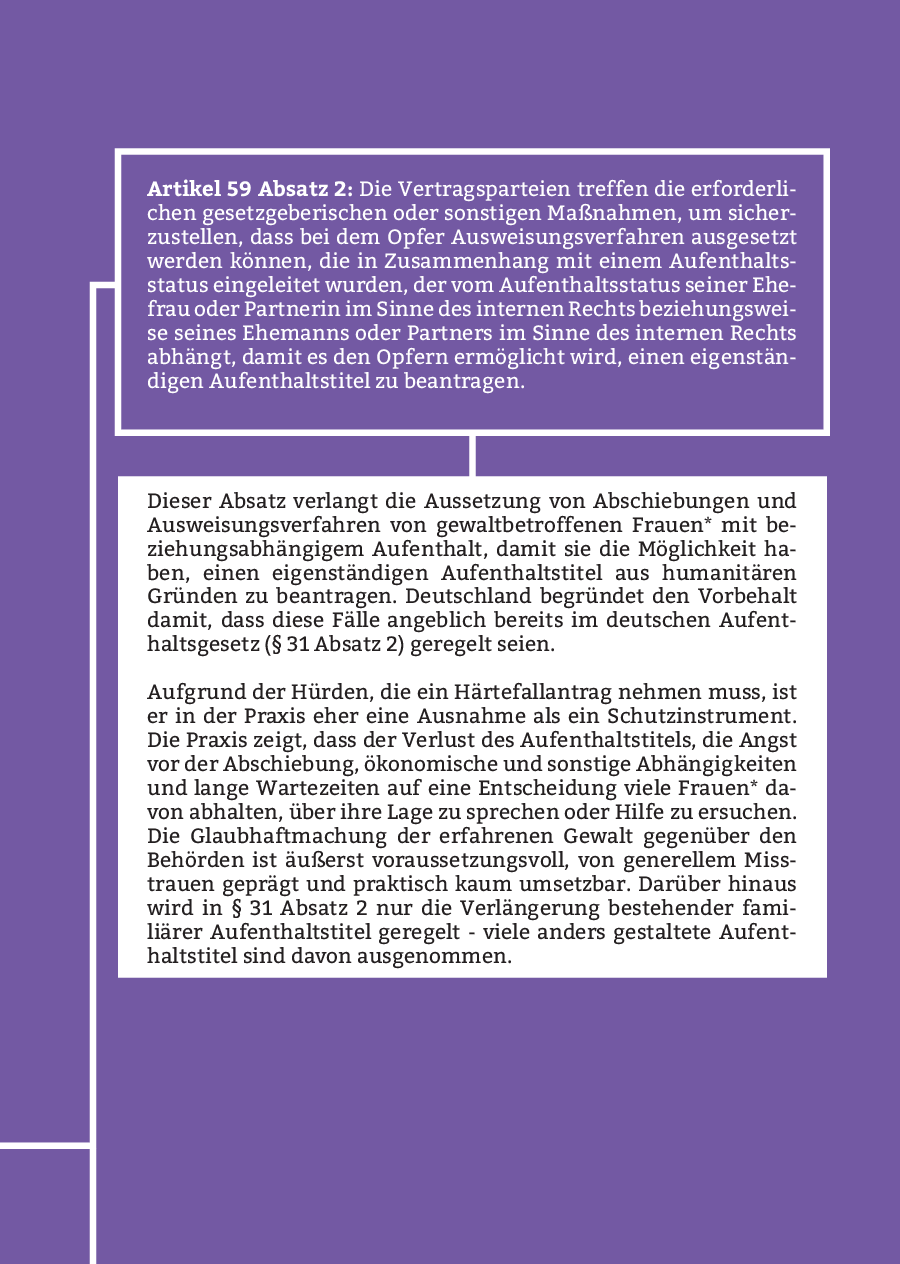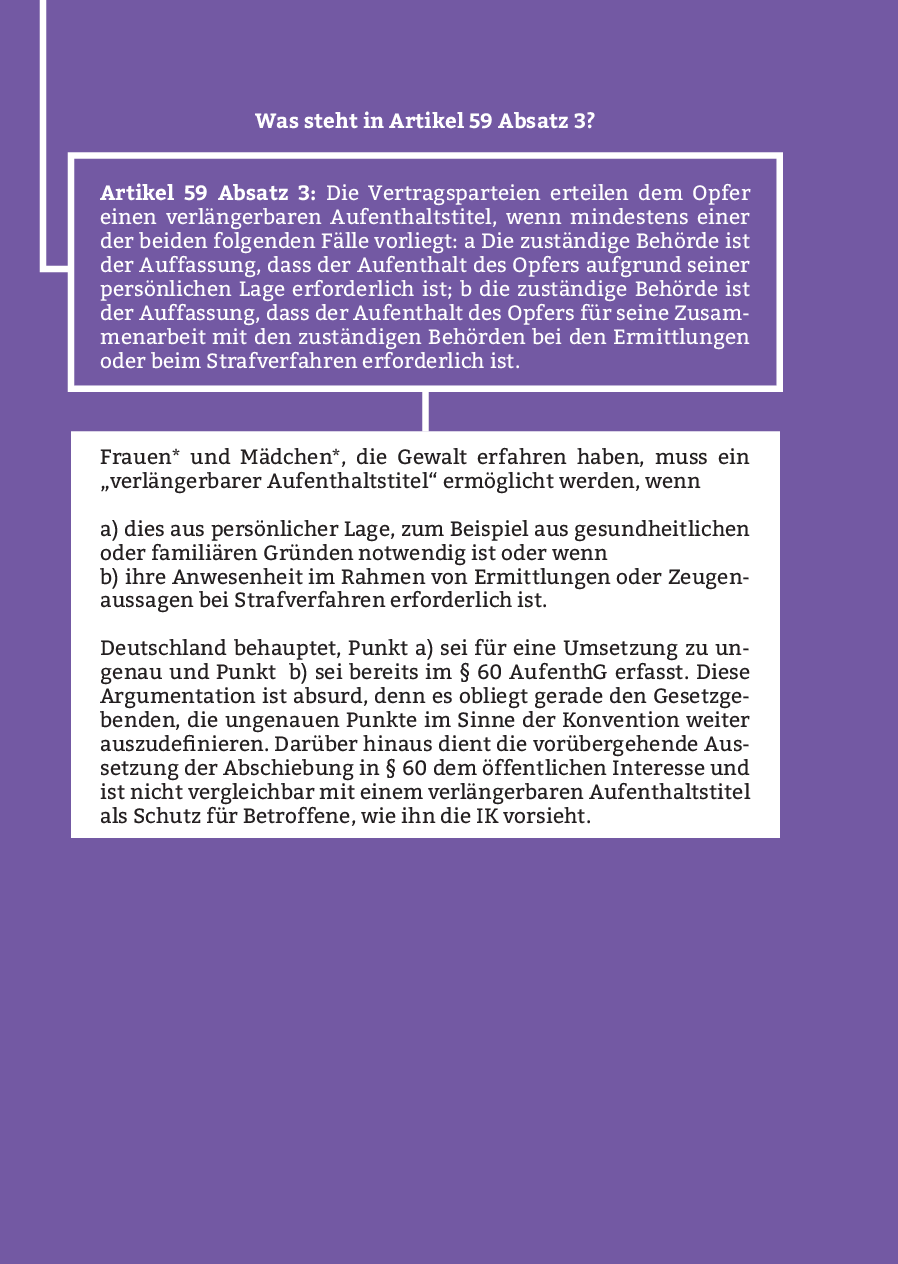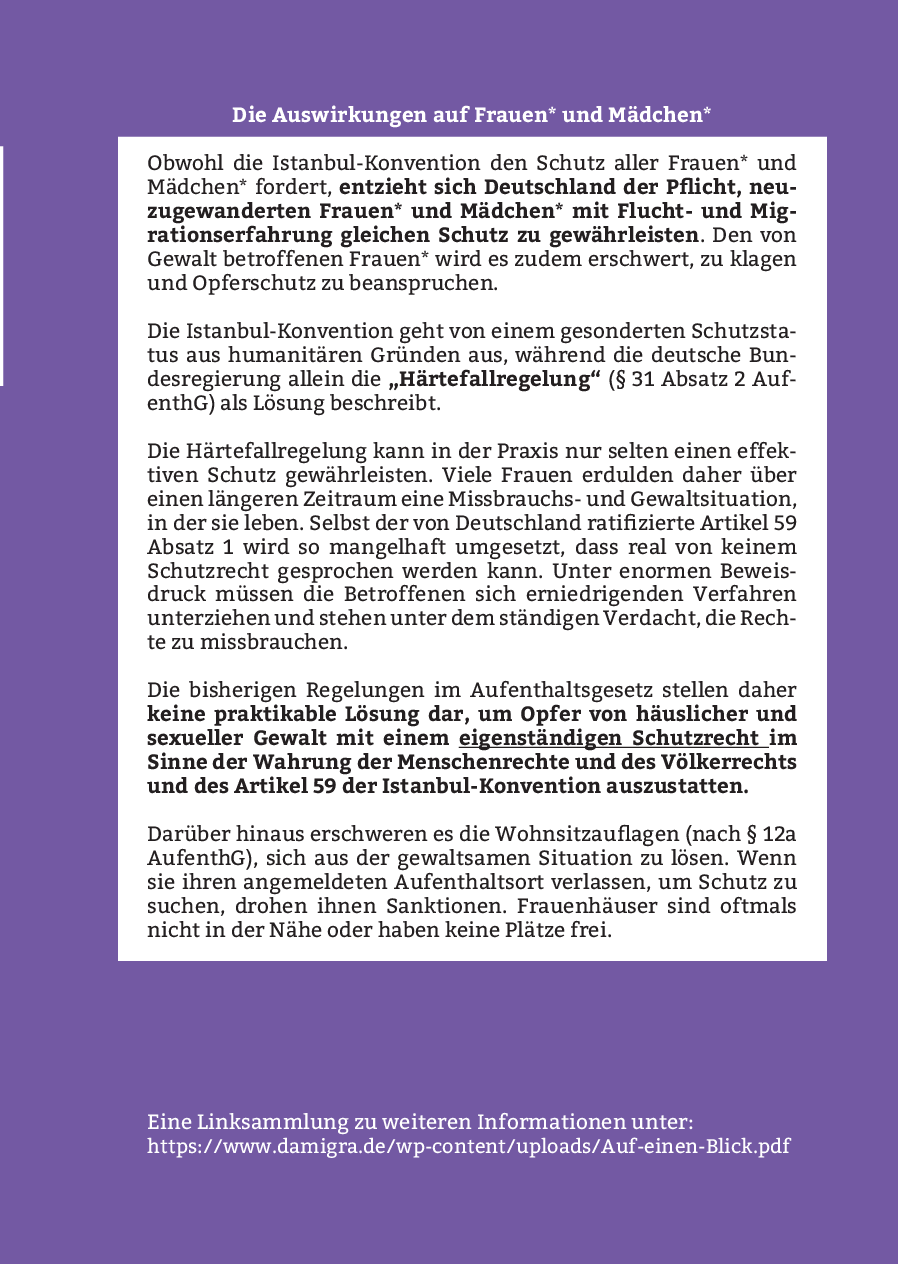Stop violence against ALL women!
The numbers are alarming: 40% of women living in Germany have experienced physical and / or sexual violence since the age of 16. In 2019 alone were loud Federal crime statistics 114.903 women stalked, threatened, abused or murdered by their (ex) partner. However, the extent of gender-based violence goes far beyond physical violence in intimate relationships and, according to the Istanbul Convention, includes all acts that cause physical, sexual, psychological or economic damage or suffering.
Women with a history of migration or flight suffer disproportionately more because of their lower chances in the education and labor market or their insecure residence status. Special protective measures are required for women with a history of migration or refugee status. It is still important to advance awareness-raising work - so that sexualised and racist violence against women with migration and refugee backgrounds is finally addressed and prevented. In addition, sexualized and / or racist experiences of violence by women with a migration history are barely visible in social debates.
“Unequal rights have never resulted in equal treatment for people. If the state does not grant the right to protection and the prevention of violence to ALL women and girls equally, then we not only have a human rights problem, but also a problem of democracy, ”explains Dr. Delal Atmaca, Managing Director of DaMigra.
Private, public or institutional violence against women concerns everyone and must be stopped.
Implementing the Istanbul Convention: RESERVED!
"The Convention on Preventing and Combating Violence against Women and Domestic Violence" is an international law treaty at European level. It was drawn up in Istanbul (hence the name) by 46 member states of the Council of Europe in 2011 and signed by Germany in 2014. It is applicable law to all states that have signed and ratified it. The aim of the convention is, on the one hand, to enable every woman and girl to lead a non-violent life and, on the other hand, to ensure gender equality. In addition to comprehensive obligations to combat gender-based violence and domestic violence in order to protect those affected and punish the perpetrators, the convention also contains far-reaching preventive measures.
DaMigra is a full member of the Istanbul Convention Alliance (BIK), an association of non-governmental organizations, initiatives and experts who work and research on the subject of violence against women.
Statement on Turkey's withdrawal from the Istanbul Convention
Statement by DaMigra on Turkey's withdrawal from the Istanbul Convention
GREVIO Report 2022 on the status of implementation of the Istanbul Convention in Germany
GREVIO shadow report on the implementation of the Istanbul Convention in Germany
Femicides
Every third day dies loudly Federal crime statistics 2019 in Germany a woman through the hands of her partner or ex-partner. A total of 301 attempted and completed crimes were counted. Experts suspect that the number of unreported cases is several times that.
Femicides - often described as murders out of injured “honor” or out of “jealousy” and “scorned love” - are a global problem. Behind this is a patriarchal system that runs through all cultures, ethnic groups, social classes and religions. We still live under power structures and hierarchies that oppress women and girls. Worldwide, Europe-wide, Germany-wide.
As long as the media, through uncritical reporting, frame femicides as “relationship dramas”, “culturalise” and “ethnicise” the act, they conceal the societal dimension of such an act.
List of demands: Effective against the murder of women and girls in the European Union
Another femicide! The protection system fails again
#Cyberviolence
Almost three quarters (70%) of all girls in Germany have experienced digital violence and harassment, according to the World Girls Report by Plan International. In the 21st century, social media are an indispensable means of communication that can make life easier, but also make it incredibly difficult. This includes social networks such as Facebook, Twitter, Instagram and WhatsApp. They are tools to keep in touch with family and friends and also to make new contacts. However, these means of communication can also serve to make people - especially women - the target of sexist-racist violence. The openness and accessibility in digital space confronts migrant and refugee women on the Internet not only with sexist cyber violence, but also with racist violence and discrimination.
DaMigra conference on the International Day against Violence against Women 2019: No power of cyber violence!
FGM - female genital mutilation
Over 200 million girls and women worldwide suffer from genital mutilation (FGM). An act of violence that, despite the criminal prosecution since 2013, is still present in Germany. Within the last three years, the number of women affected in this country has risen by 44%. An estimated 70.000 women live in the Federal Republic of Germany who had to experience this act of violence. Another 17.500 girls are considered to be at risk. FGM is a transcultural problem.
DaMigra stands for zero tolerance towards FGM. You can find more information on the subject here.
Opinion on FGM-C: Why an entry in the penal code alone will not protect women and girls
Round table with experts on FGM: female genital mutilation
International Day Against Genital Circumcision 2020: Zero Tolerance to Female Genital Mutilation
